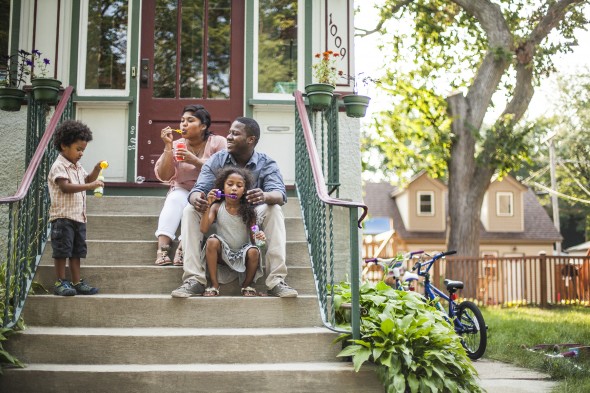Social work experts ask: how can society protect our children?
How can we, as a society, protect our children?
Faculty in the Jane Addams College of Social Work addressed that complicated and important question recently at the 21st Karen Honig Memorial Lecture on campus.
Von Nebbitt, associate professor of social work, opened the panel by describing his research in public housing and its impact on outcomes for kids and families. Nebbitt, who studies minority adolescent well-being in public housing, said researchers haven’t done a good job of tracking the reasons that some families do well in public housing. They haven’t learned how to turn that knowledge into programs and policies to help children and families succeed, he added.
“We may need to revisit things we did in the 1990s when we had wrap-around services, caring adult models and large amounts of community engagement,” he said.
Otima Doyle, assistant professor of social work, said one way to protect children is to involve fathers in prevention and intervention. Doyle, who is concerned with the role of African-American fathers, encouraged the audience of fellow social workers to consider their own agencies’ policies, whether implicit or explicit, regarding fathers.
Henrika McCoy, assistant professor of social work, said another factor affecting children, particularly male juvenile offenders, is a history of trauma. McCoy, who studies the relationship between mental health and juvenile delinquency, said when trauma is not addressed, it can become an “entrée to violent behavior and aggression.”
“If we want kids not to go back into the juvenile justice system, we have to respond to their needs,” she said. “We have a responsibility to really understand more about the young males in our system and include it in our research focus.”
Alan Dettlaff, associate professor of social work, ended the talk by describing emerging issues that could mean positive outcomes for Latino and immigrant families. “Latino children of immigrant families have long been considered potentially to be at increased risk of maltreatment, largely because of all the stressors associated with the immigration experience,” he said. Dettlaff, whose research focuses on improving outcomes for children of color in the child welfare system, said having “culturally responsive services and service providers” can help provide stronger protection for children.
Faculty field liaison Cassandra Hudson said the April 21 lecture offered valuable insight for students and professionals in the audience. “There are times when students come to me and are resolving issues in their field placements,” Hudson said, “so some of this information may be helpful to me as I deal with students.”
Karen Honig received her master of social work degree from the Jane Addams College of Social Work in 1986. Her family and friends established the Karen Honig Memorial Lecture to honor her memory and to focus on her commitment to inner-city children and youth and their families.

